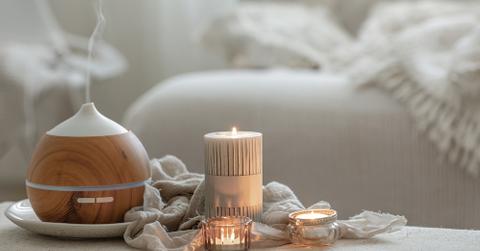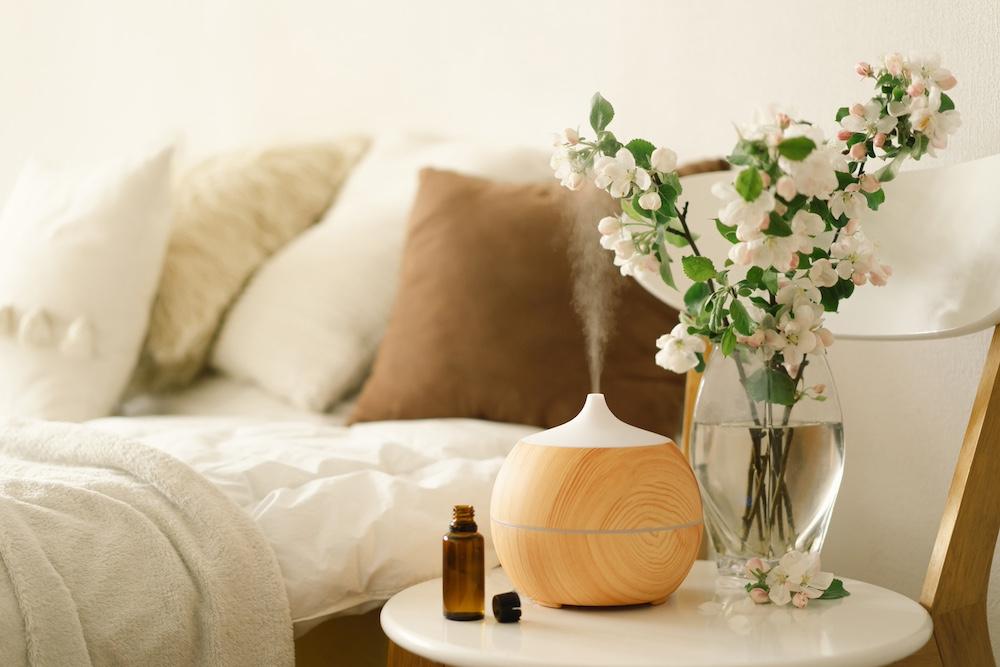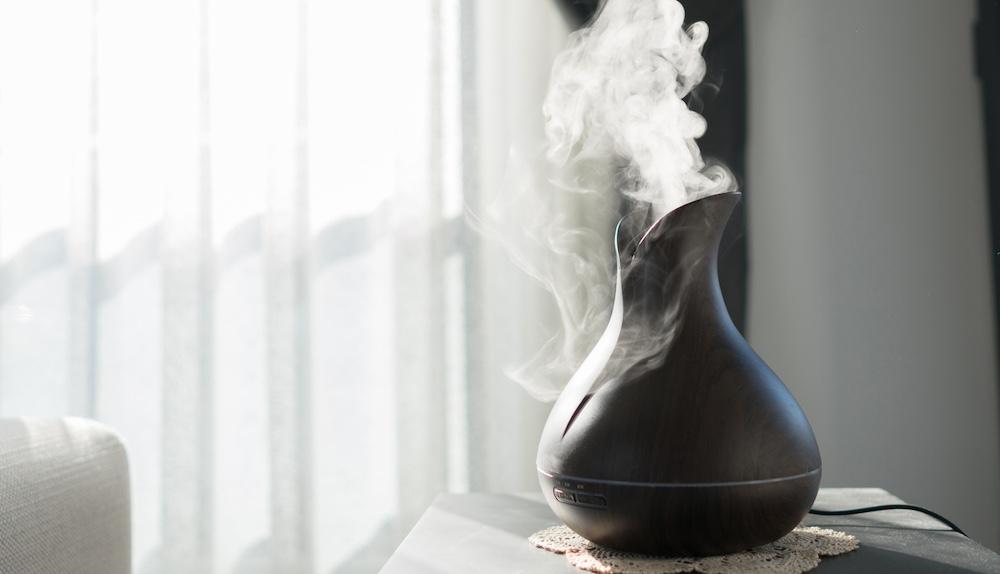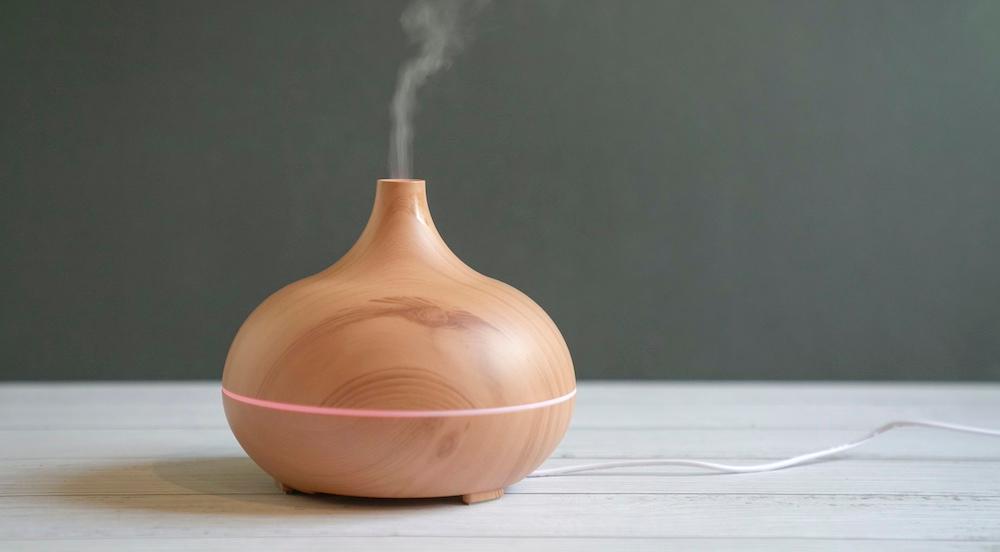Looking to Refresh Your Home With Essential Oils? A Diffuser Can Get the Job Done
To choose which diffuser is right for your home, you will have to evaluate the four types: heat, evaporative, nebulizing, or ultrasonic.
Published Feb. 22 2024, 4:57 p.m. ET

When making your house a home, the air around you can greatly impact how much you enjoy the space. ACs and fans can help keep things cool, but an essential oil diffuser can bring new life into the otherwise stale air around you.
For many, essential oils are a key part of self-care. But with so many different diffusers on the market now, how do you know which one to buy? And just how does a diffuser work? We've broken down how these devices get the job done and how to pick the right one for your space.

How does a diffuser work? Here's how these small machines help you enjoy essential oils.
According to Healthline, a diffuser is a device that dispenses different scents into the air around you via essential oils. Not only can this make your home smell great, they are also a convenient option for aromatherapy. Plus, they can also add a humidifying aspect and don't cost much upfront.
According to SpaRoom, there are four types of diffusers:
- Heat
- Evaporative
- Nebulizing
- Ultrasonic
The technology used to make a device works depends on which one you have. With heat diffusers, a small candle sits inside and evaporates the essential oils. Then, the vapor makes it into the air of your home.
Heat diffusers are a great option for residential spaces because of restrictions around open flames in public. However, a clear drawback of heat diffusers is that you can't control the intensity.

If you're looking for an evaporative diffuser, the inside of the device comprises a fan and a pad at the bottom. All you have to do is add a few drops of oil to the pad, says Escents Aromatherapy. Over time, the oil evaporates, and the fan disperses the vapors. SpaRoom says many of these options are portable and inexpensive, but they don't work well in large rooms.
Next, we have nebulizing diffusers, which are sometimes called atomizing diffusers. According to Greenopedia, these use an atomizer to get the oils into the air and then a spout releases the scent. Nebulizing diffusers do not require heat or water and are typically easy to use with no real setup required. However, they can be loud and go through oils faster than other designs.
Lastly, ultrasonic diffusers use water along with essential oils to give the air a refresh. Ultrasonic diffusers also double as a humidifer which is great if you're in a drier climate, but they do require frequent cleaning to prevent mold.

Ready for a diffuser of your own? Here's how to make the best choice.
Ultimately, deciding which diffuser is best for you and your needs is a personal choice. But with all the brands on the market, it can be difficult to choose. Consider your lifestyle, the size of the room you want to use it in, if you have kids or pets, and other factors that contribute to the overall feeling of your home.
According to Get Canopy, the placement of your diffuser is also important. For ultrasonic and evaporative options, keep these away from windows. The sunlight could cause algae and bacteria to grow in the tank. Also, keep in mind that SpaRoom points out that evaporative ones don't work well in big rooms. But if you're keeping your diffuser next to you on your desk at work, it should work well.